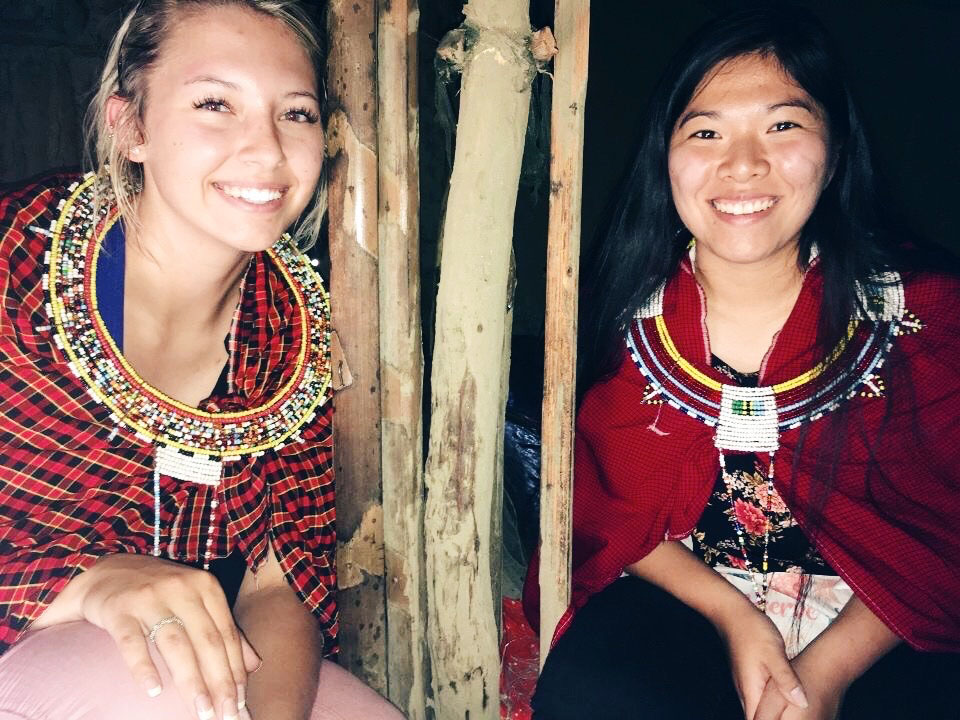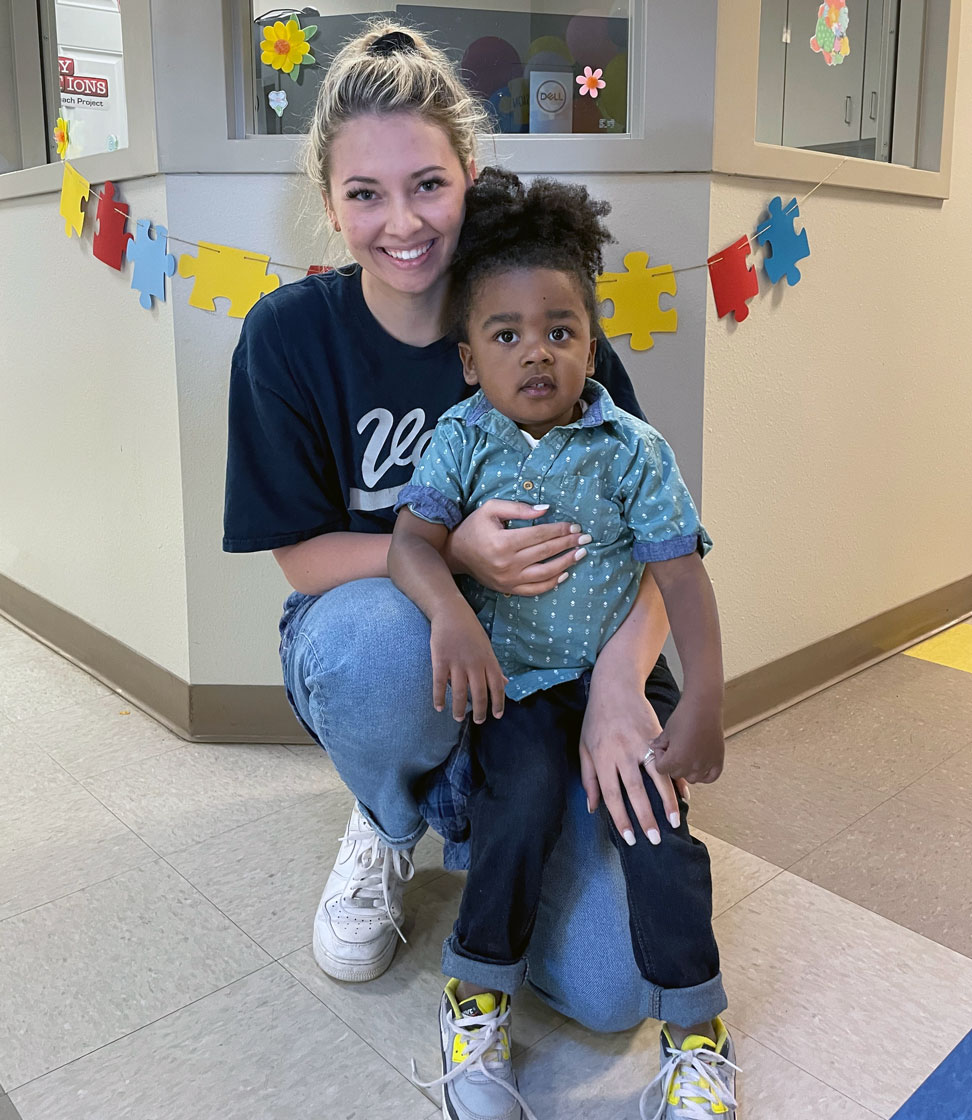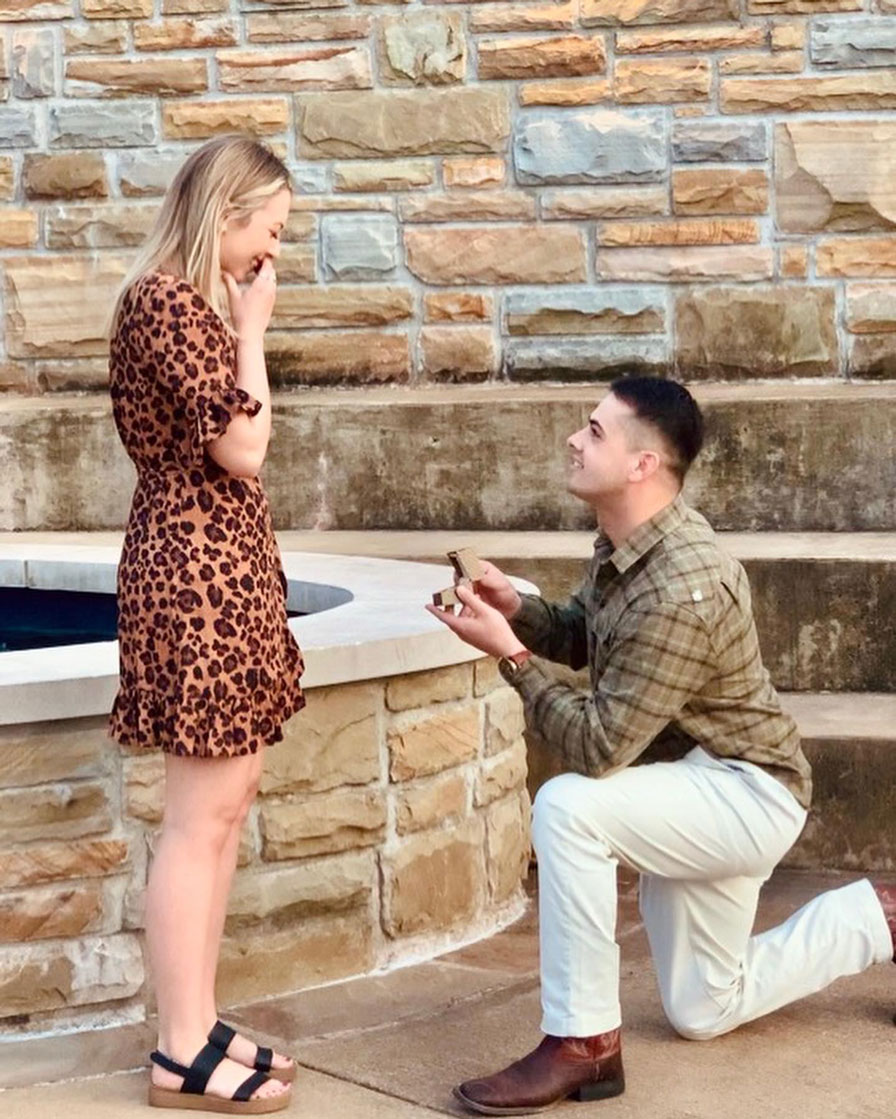 Fulks working with children at the Oklahoma Autism Center, where she spent a gap year as a behavioral analyst. Cheyenne Fulks, who began her studies this spring as part of the OTD 2 cohort, is named in honor of her father’s favorite Native American chief.
Fulks working with children at the Oklahoma Autism Center, where she spent a gap year as a behavioral analyst. Cheyenne Fulks, who began her studies this spring as part of the OTD 2 cohort, is named in honor of her father’s favorite Native American chief.
“Chief Black Kettle was chief of a Cheyenne tribe and is well known as a peacemaker," says Fulks, a member of the Choctaw Nation of Oklahoma. “He had 17 children, one of whom was named Cheyenne, whose position was termed ‘princess.’ It’s a very elaborate reasoning for my name.”
Fulks, who is fluent in Choctaw, grew up mostly in the small town of Purcell, OK, where she was immersed in Native American culture. “I felt a big sense of community because the whole state is a native nation,” she says.
She welcomes questions about her Native American heritage. “Educating people about my culture makes me feel more connected to it,” says Fulks.
The Choctaw Nation awarded her scholarships throughout elementary and high school that provided her with an iPad and a clothing allowance. It paid for her health care and her undergraduate education.
Fulks’s father teaches history, and he encouraged her to learn about the past, including that of her family and tribe. “I can track them all the way back to when we lived in Mississippi, before the Trail of Tears,” she says.
The Trail of Tears (1830−1850) refers to the forced removal of more than 60,000 Native Americans from their ancestral homelands in the southern United States to what is now the state of Oklahoma.
The Choctaw were the first of the five tribes the US government forced on these westward marches that killed thousands of Native Americans though disease, exposure, and starvation. A Choctaw chief termed it “the trail of tears and death.”
Fulks has a strong sense of the past and a deep-seated connection with her Native American community, but she is crafting a future that is uniquely her own.
“Leaving Oklahoma was hard, but I always liked the idea of getting out of the state, of being different and doing my own thing,” she says.
Here, Fulks talks about experiences that have helped shape her life.
 Fulks and a fellow study abroad student visiting a Maasai tribe in Tanzania that educated them about Maasai traditions and culture. Did you grow up speaking Choctaw?
Fulks and a fellow study abroad student visiting a Maasai tribe in Tanzania that educated them about Maasai traditions and culture. Did you grow up speaking Choctaw?
Yes, a little bit. My grandmother, who is Choctaw, spoke it, and my dad kind of did, but not the way she did. My grandmother had stroke when I was 9 and couldn’t speak afterward. When that happened, I stopped learning it. But when I got to University of Oklahoma [OU] for undergrad, they had Choctaw, and I took classes. Now I can read it, write it, and tutor people in it.
How did you decide you wanted to be an OT?
I always knew I wanted to go into occupational therapy or something like it. I first got the feel for OT, PT, and rehab when my grandmother had her stroke. Then, my senior year of high school, my mom got breast cancer and had a double mastectomy. She had [a lot of therapy], and I went with her to appointments. I thought the therapy was amazing, and it really made me see the difference between PT and OT—and how much I think OT is more fun. I majored in health and exercise science at OU, and was pre-OT the entire time.
What other experiences have helped you reach this key point in your life?
I went to Tanzania in East Africa the summer after my freshman year through a study abroad program. I think by studying abroad I realized how quickly my life could change for the better by getting out of my comfort zone. I saw a change in myself that educated me beyond what my small-town life could ever have offered me.
 Fulks worked with this boy at the Oklahoma Autism Center for most of her time there. She is still in touch with him and his family. I took classes in East African women’s studies and film and arts. My study abroad group toured residential care centers for vulnerable children, and I learned that, sometimes, children are adopted against the wishes of their biological family, who place them there to get free food, shelter, and school.
Fulks worked with this boy at the Oklahoma Autism Center for most of her time there. She is still in touch with him and his family. I took classes in East African women’s studies and film and arts. My study abroad group toured residential care centers for vulnerable children, and I learned that, sometimes, children are adopted against the wishes of their biological family, who place them there to get free food, shelter, and school.
My favorite quote from my study abroad experience is “Education is not a way to escape poverty—it is a way of fighting it.” [Julius Nyerere, former president of the United Republic of Tanzania.]
I also took a gap year after undergrad and worked as a behavioral analyst in an early intervention program at an autism center in Oklahoma City. The program was for kids younger than 5 who were at risk for autism.
I worked with them on fine motor skills, vocabulary, and imitation behaviors. I watched one of my kids, who had never talked, start talking. Another kid, who was 3, went from never walking to running around and playing just like every other kid. The experience made me fall in love with kiddos, and I felt like I was making a real difference in their lives.
Why did you choose UAB to pursue graduate work in occupational therapy?
My fiancé was planning to go to law school, and got in pretty much everywhere he applied, including Samford University. I thought UAB looked really cool, and I applied. I did my interview over Zoom with Dr. Jenkins—he was awesome. My fiancé and I agreed on Birmingham, and I committed to UAB as soon as I could.
 Fulks’s fiancé surprised her with a marriage proposal at Vulcan Park.
Fulks’s fiancé surprised her with a marriage proposal at Vulcan Park.
How is life in Birmingham?
I love it. Like Oklahoma City, it’s got a very diverse population, but Birmingham is prettier. I hang out with [friends from Alabama in my OTD program], and they’re having fun introducing me to new things.
I got engaged here. My fiancé proposed in March at Vulcan Park—both our families were there. I thought they were in Birmingham to help us with apartment hunting. My sister told me to wear a dress [to the park], which was weird because I don’t wear dresses. Everyone was acting strange and following me around. When we walked up the stairs, my fiancé slipped and fell [he was not hurt], and that’s not like him. I thought it was nerves and that [the proposal] might be happening.When we got down, he went into a big speech. I still have no idea what he said to me, but it was a really cool moment.